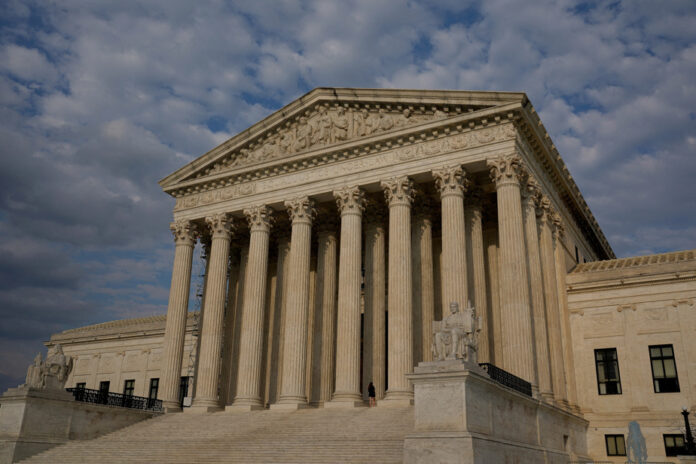(Washington) The ultra-conservative U.S. Supreme Court on Tuesday seemed sympathetic to arguments from a Christian postman unhappy with having to work on Sundays, citing his faith, while being reluctant to impose too strong constraints on businesses, even for the religion.
The high court, very concerned with religious freedoms since its reshuffle by Donald Trump, is studying the case of Gerald Groff, an evangelical Christian who started working for the postal services in 2012.
Following a contract between La Poste and Amazon, its sorting center had to open on Sundays to process parcels from the distribution giant.
Putting forward his religious convictions, he had asked for accommodations so as not to work on the 7th day of the week.
His employer had tried to satisfy him by transferring him to another center and by finding colleagues to ensure his Sunday duty, but Gerald Groff had ended up being sanctioned for abandoning his post.
In 2019, he resigned and filed a complaint for religious discrimination. After losing at first instance and on appeal, he turned to the Supreme Court.
During Tuesday’s hearing, the judges focused on a 46-year-old precedent that has been heavily criticized by religious freedom advocates.
In 1977, in a case involving an airline employee who did not want to work on Saturdays, the Supreme Court ruled that statutory accommodations should not “inflict more than minimal cost” on employers.
It “allows companies to avoid accommodations in most cases,” says law professor Joshua McDaniel on the Harvard University website.
The ruling violates the principle that “employees should not have to choose between their faith and their work,” said the letter carrier’s attorney, Aaron Streett.
A 1964 federal law, amended in 1972, prohibits religious discrimination in the workplace and requires employers to seek accommodations to accommodate the beliefs of their employees, as long as it does not represent an “undue burden” on their operations.
With this case, the high court could enlarge the place of religion in the professional sphere, after explosive decisions on weapons or abortion in recent months.
But some of the conservative justices seemed worried about the potential consequences for businesses.
The law must strike a “balance between two important values: religious freedom, and the right of American businesses to thrive,” Kavanaugh said.
Elizabeth Prelogar, who argued for the Biden administration, asked the judges not to reverse the 1977 ruling.
In practice, courts “regularly require employers to offer flexible working hours” to employees to respect their religion, she said.
Conservative Supreme Court justices have compared this issue to the situation of disabled workers.
If, for them, businesses must adapt regardless of the cost, shouldn’t the same rule apply when it comes to religion?
The Supreme Court did not seem to lean clearly one way or the other. She has until June 30 to make her decision.


















